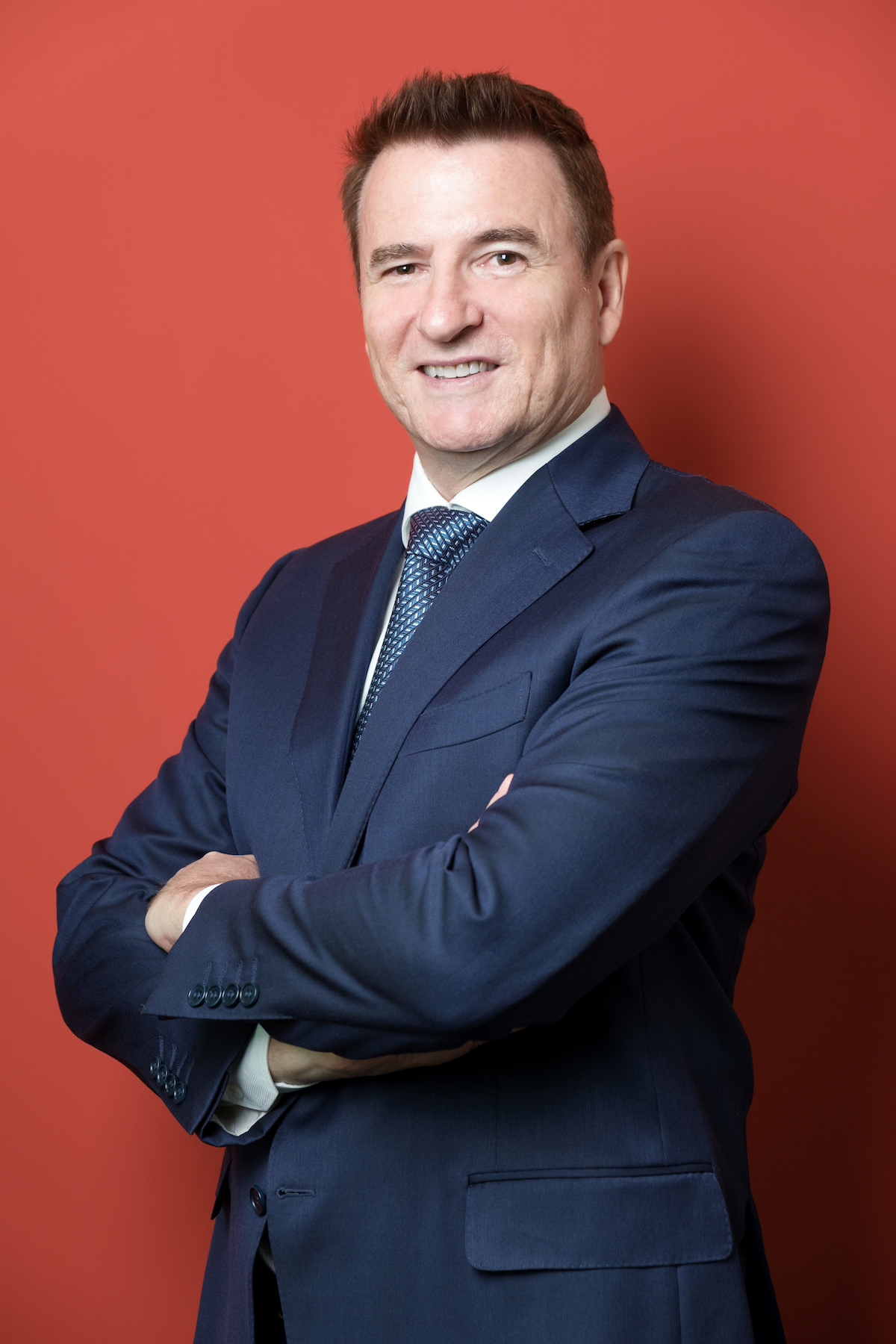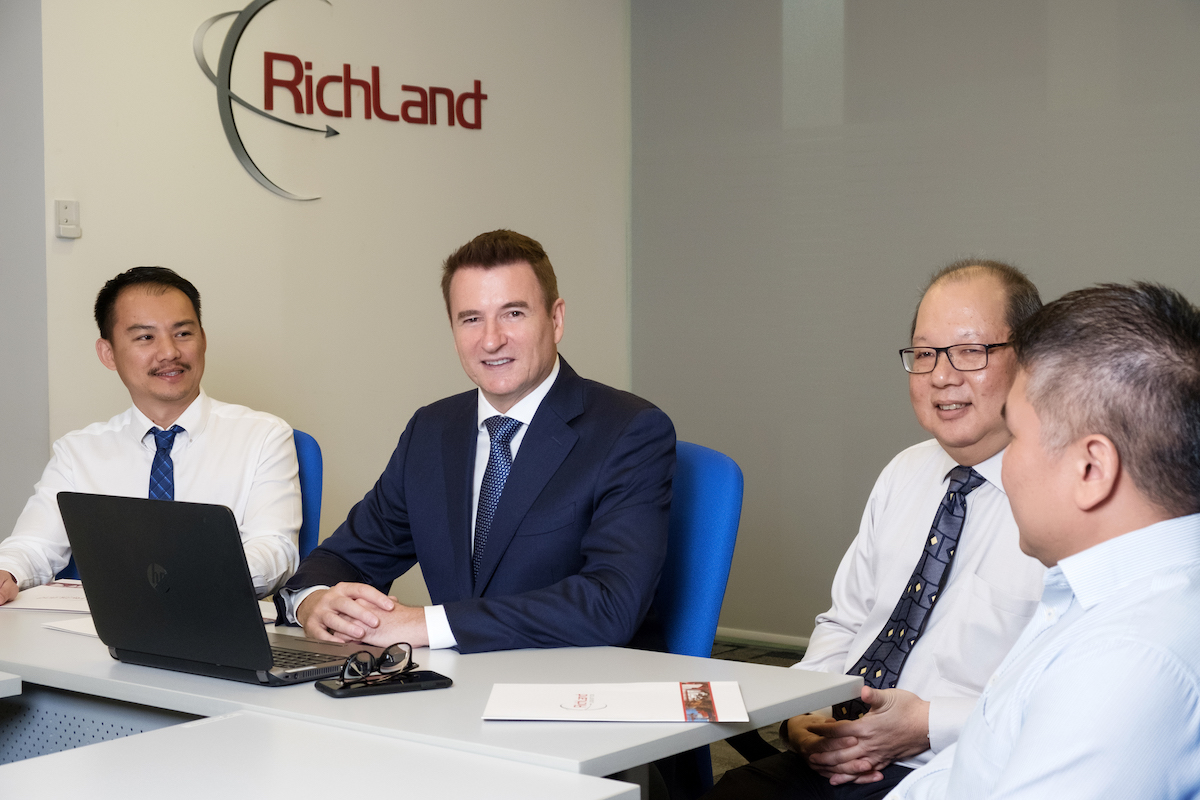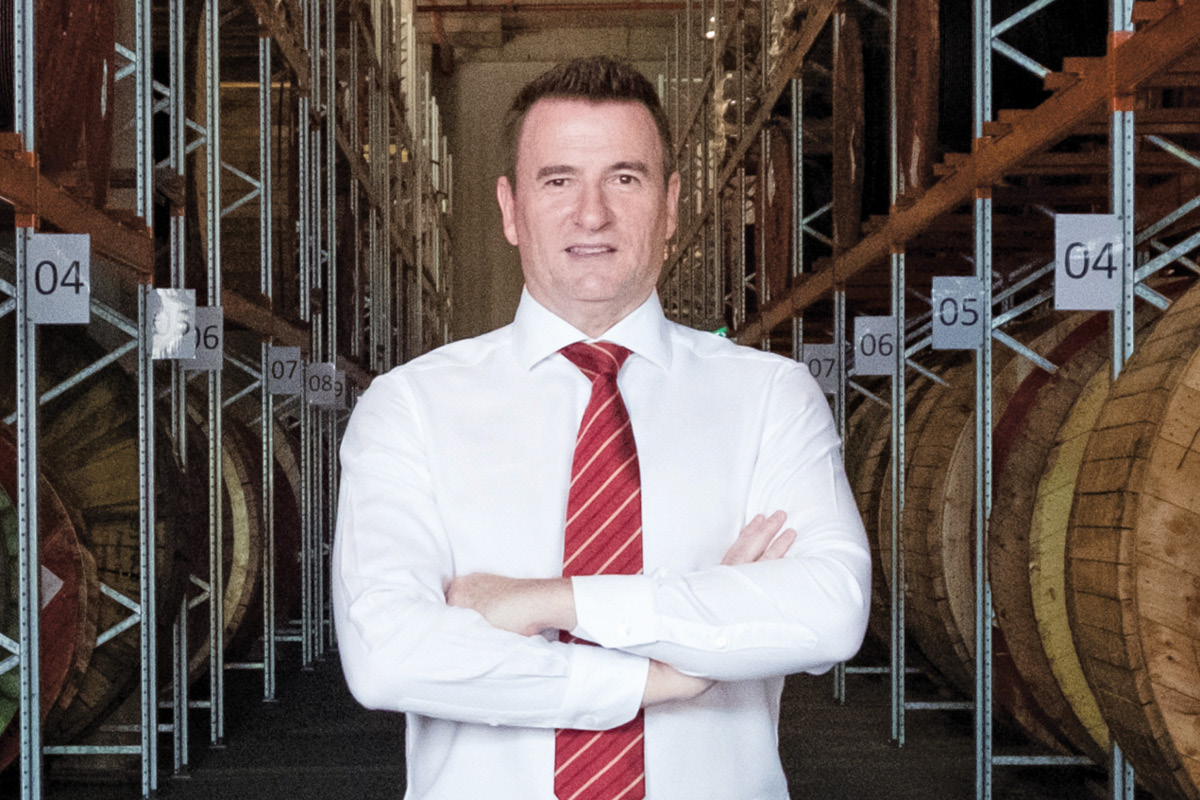Colin Moran, Group Logistics Director of RichLand Logistics, believes his industry is ripe for a shake-up. He says the expansion of e-commerce, the different attitudes that are evolving towards globalisation, and the centralisation versus decentralisation debate are rapidly changing the logistics landscape, and the industry needs to keep up.
“Our industry has received something of a wake-up call that says you need to find the right way to partner with customers and provide genuine solutions. The solution isn’t just getting a truck from A to B,” says Colin.
He cites Donald Trump’s push for organisations to bring manufacturing back to the US as an example. “That suddenly changes supply chains for people, and logistics providers are part of the solution as to how those companies grapple with changes and how they deal with e-commerce, shifts of supply bases, et cetera,” he explains. “As service providers, we need to be thinking about those changes and how we help companies through them strategically.”
An agile advantage
Colin’s keen insight into the logistics business is drawn from his deep well of experience. He’s been in the same industry since joining TNT Australia in 1988. In 1995, he moved to Singapore with the company, and then spent 10 years in Indonesia running the operations arm, before becoming managing director of TNT Logistics Asia. He saw the business through a separation, when TNT Logistics became CEVA in 2006, and then a merger with EGL in 2007.

Then, in 2009, after 20 years of service, Colin decided it was time for a change and took a year off from the industry. It didn’t take long to reel him back in, however, and in 2010 he was recruited by Ramba Energy to run its recently acquired logistics company, RichLand.
Although RichLand is a relatively small company, currently operating in just 2 countries — Singapore and Indonesia — Colin says its size affords it an agility that works to its advantage. RichLand also has a fairly flat organisation structure, which means the company can make decisions and implement change quickly.
“We are not a slow-moving dinosaur,” Colin laughs. “Commercially, we can look at how we approach business with a different flexibility because of our size.”
SEA expansion
He does, however, have plans for expansion so that RichLand can continue to compete with the bigger players. When Colin started at RichLand in 2010, it was a one-country entity and very Singapore-centric. That same year, the company chose to enter the Indonesian market, and has since more than doubled in size.
“We looked at the business and we knew strategically that diversification and expansion were critical to make sure we could build a future that was sustainable, mitigating the risk of being focused on one country and only a couple of customers,” explains Colin.
With just over 400 employees in Indonesia, RichLand has become one of the largest 3PL (third-party logistics) operators in the nation’s petrochemical industry. Now the company is looking at further expansion in South East Asia.

The plan is to build a presence in Malaysia, Thailand, and then potentially Australia and Vietnam.“We’re a small local supplier that really competes with the big boys in what we
do. If we don’t continue to expand the business, the environment will just get tougher and tougher where we are. So strategically, over the next say 3 to 5 years, we are focused on South East Asia or parts of ASEAN. That will help us diversify and also strengthen our offering to our customers in more markets.”
Adaptive apps
However, Colin has no intention of losing RichLand’s flexibility as it grows. Eschewing the traditional transport and warehouse management systems, the company has looked into other technologies that will enable RichLand to be responsive to customer demands
and market changes.
“Over the past 2 years, we have had a good look at the disruptive technologies coming out around the world that are creating new waves of change. What we believe is that a lot of the typical traditional transport management systems and warehouse management systems that logistics companies have subscribed to are very inflexible, expensive to operate, serve and maintain, and they are slow to react to change.”
We’re a small local supplier that really competes with the big boys in what we do.
RichLand is looking at app-based technologies instead, and has hired in-house programmers to develop apps for its customers. Colin says these apps are quick to roll out and adapt, which allows the company to be more customer-centric. He adds: “We can do it at a far better cost level, so I think it will help us to become much more cost competitive over time. And it helps to differentiate us.”
Logistics providers keep the world functioning
Another competitive advantage that RichLand holds over the bigger players
is its focus on asset ownership, which allows the company to control its service and cost base. Colin says this also helps RichLand to form end-to-end partnerships with customers.
“Asset ownership enables us to control the standard and level of service that we are providing to our clients.
Many of the multinational logistics companies, while they are 3PL operators, are predominantly asset-light and use subcontractors to provide them with services or facilities. Our strength is our ability to differentiate by being prepared to take on asset ownership and be the direct operator.”
Ultimately, Colin says, RichLand is concentrating on strategy, in an industry that has become less strategic over time, having been pushed down a procurement path that is price-based rather than solution-based. “RichLand wants to build sustainable, long-term partnerships with clients by helping them to manage the entire supply chain: control of their inventories, stock costs and holding costs, and everything else,” he says.
That’s why Colin knows there is growth on the horizon for RichLand. “After all,” he says, “moving goods and products around, whether it is within a neighbourhood or within a city,
within a country or globally, has been happening from almost day one, so we — logistics providers — keep the world functioning.”

